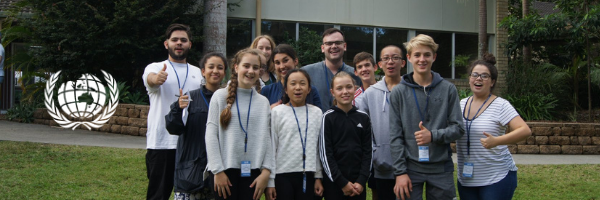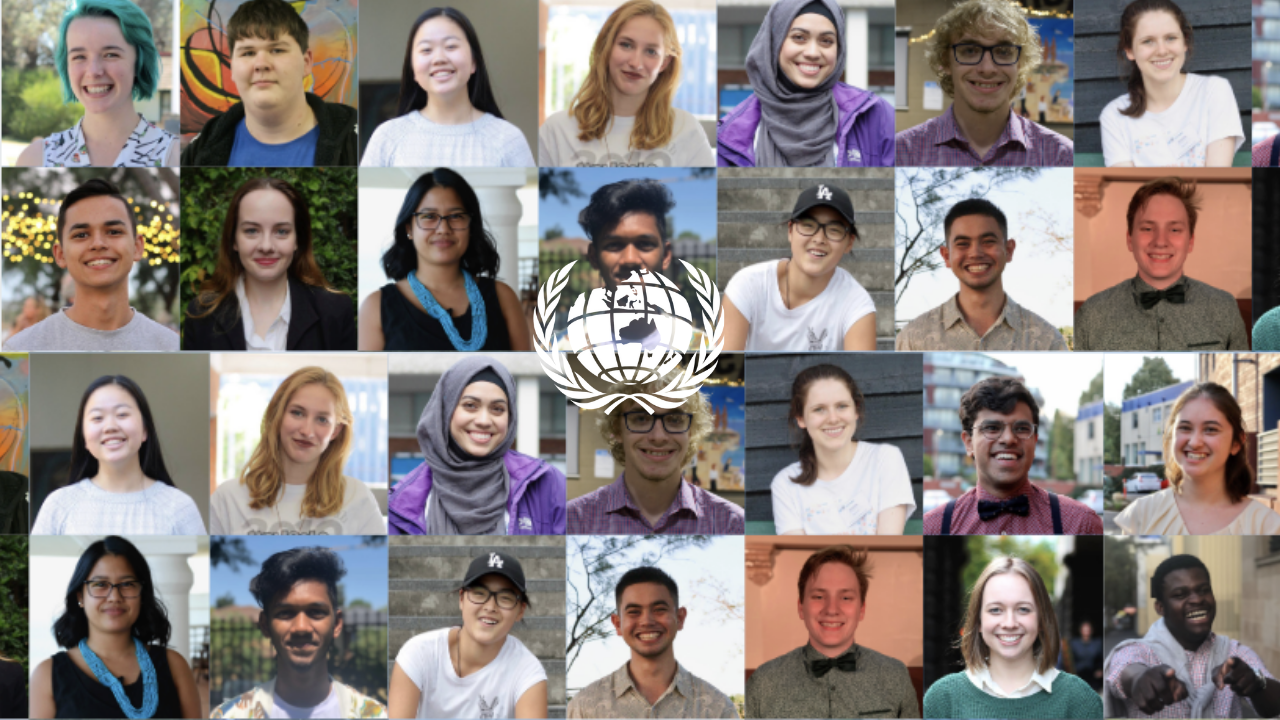COVID-19 and Youth Freedom of Speech
Locked away in our homes, surrounded by four walls and feeling consumed by our own thoughts. This year is definitely not turning out to be the year that any of us were expecting. First came the bushfires, and now the coronavirus is keeping us indoors. But even in this strange new world, there are many reasons to still remain hopeful. Opportunities exist for young people to express their opinions and take action like never before. Cassady Swinbourne, National President for United Nations Youth Australia, understands the issues young people are facing during isolation.
2018 Youth Representative Program: Photo by UN Youth Australia
“When you are young, one of the greatest anxieties is to decide who you are and let yourself be comfortable with that. Too often, unfortunately, who you are and who you are most comfortable being, family may not feel as comfortable with,” Ms Swinbourne said.
“For some people, it is the pressure from parents to go on a diet, for others it is being mis-gendered constantly by the people they are forced to cohabit with. My greatest problem is nothing of the moment, but my fear of the future. For many the mental health and economic impacts of these past few months will last years,” she said.
One of the ways out of this recession for young people is for them to continue to share their stories, and to be at the forefront of this issue, helping to implement a brighter future when we come out of this. In a number of countries, governments have failed to allow freedom of expression and have withheld information revealed by journalists and healthcare workers. Under article 4 of the International Covenant on Civil and Political Rights, countries may take measures to derogate from their obligations under the Covenant, including the right to freedom of opinion and expression ‘in time of public emergency which threatens the life of the nation and the existence of which is officially proclaimed’.
In Australia, young people have access to resources which allow them the opportunity to learn, connect and collaborate with other young people. The shift to online learning and communication during the global pandemic can be seen as a positive way for young people to collaborate as a collective during this time.
Despite the multiple challenges stated, there is still so much passion and motivation within young people. Laura John, President of the United Nations Association of Australia, believes that the Australian society can raise awareness on issues young people are facing during COVID-19.
“There is an important role for the Australian society in amplifying the voices of young people, rather than diluting or dominating those voices. Young people don’t need others speaking for them, but what is needed is a space in which young people can speak for themselves about the issues they are facing. That’s what makes the work of organisations like UN Youth so important – they are run by young people for young people,” Ms John said.
Youth freedom of speech allows young people to have some control on their current circumstances.Young people represent some of the most engaged and educated voices in the world and now is the time to ensure inclusion, equitable treatment, and clarity in presenting the views of all the groups young Australians are a part of.
In a recent interview with Sky News, young people were quoted as being ‘complacent’ towards COVID-19, because of the media highlighting a range of different stories from experts, rather than young people themselves. The only way that young people will be able to give a clear indication about how they feel during the pandemic, is to have their voices contributing to participatory processes.
Ms John advises young people to utilise the resources at hand to stay connected and to ensure that they are still recognised and are at the forefront of creating change.
“I would encourage young Australians to continue to build and invest in their tribe. Your tribe is your support network. It’s the people who have your back no matter what – who will shelter you from life’s storms or pandemics! Make the effort to stay connected, even if it’s while we are all 1.5 metres apart,” she said.
Ms John believes there are reasons to be hopeful and offers inspiration through words that have brought her comfort.
“I have always been impressed with the ability of young people to adapt and innovate, particularly during periods of crisis. I hope that young Australians feel ready to meet life’s challenges and if not, I hope you feel able to reach out and seek support.
In the current context, there is space for young people to utilise the online environment to be creative and have their voices heard during isolation. It’s the responsibility of young people to help others and build a more resilient, informed and inclusive community to lead us into the future. Increased examination on freedom of speech and limitation on public participation have become rapidly monitored during COVID-19. But don’t let this stop you.
Ms John adds one last phrase of encouragement for young Australians to take heed.
“Your voice matters. Don’t ever forget that”.
WORDS: SARAH RAMANTANIS
PHOTOGRAPHY: UN YOUTH AUSTRALIA
PHOTOGRAPHY: UN YOUTH AUSTRALIA







